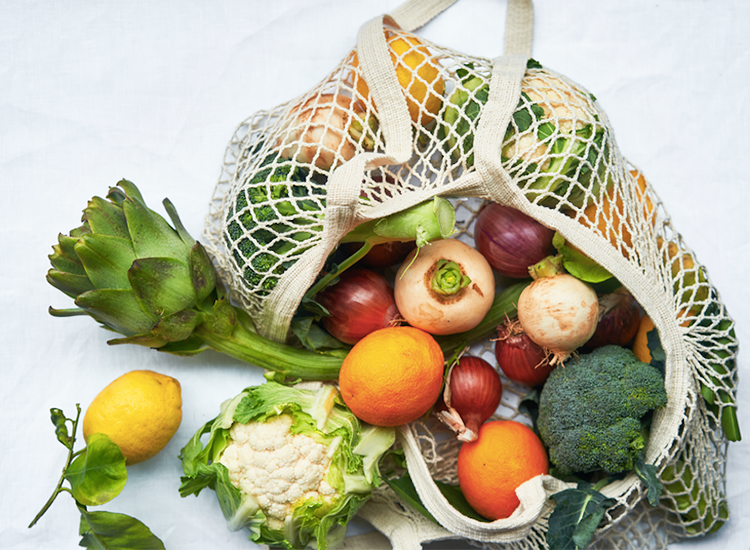Clean 21: 21 Day Detox
Our Signature 21-Day Full-Body Reset
Questions? Ask about this product
Free Shipping On Orders Over $50
Complementary products


A plant-based diet focuses on whole foods and, well, plants! It doesn’t necessarily have to mean you’re “vegan” or any other label. It means you consume a diet rich in whole fruits, whole vegetables, whole grains, whole nuts, and seeds, etc. Most importantly, we are placing whole foods above all else, and limiting processed foods, just like the Clean Program.
Plant-based diets can look different for each of us. There’s a difference between a plant-based diet and a vegan diet although these two are often used interchangeably. A vegan diet is often defined as not just a way of eating, but as a way of living which seeks to exclude all forms of animal products (food, clothing, etc.) and honey.
A plant-based diet is composed of natural, real ingredients that are packed with vitamins, minerals, fiber, and nutrients to nourish the body from the inside out. Maintaining a whole-food, plant-based diet reduces our chances of developing chronic disease and increases our overall health.
A plant-based diet includes whole plant foods that are abundant in nutrients such as vitamins, minerals, dietary fiber, antioxidants, phytonutrients, and healthy fats, leaving us feeling healthy and happy.
Some of the benefits of a plant-based diet include:
Great plant-based sources of protein are quinoa, beans, legumes, edamame, tempeh, nuts, and seeds. Remember, plant-based isn’t eating exclusively plants, so you could also add a bit of high-quality animal protein here too, like organic chicken, wild-caught fish, turkey, or eggs.
Always choosing wholesome sources of animal protein that have been raised ethically is optimal. Look for organic, cage-free, and antibiotic-free animal products.
Fat is important for hormones, brain health, satiety, and the absorption of fat-soluble vitamins (vitamins A, D, E, and K). You can use things like extra virgin olive oil, avocado oil, nuts, seeds, olives, or avocados.
Starchy Carbohydrates
Carbohydrates fall into two major categories: starchy and non-starchy. Starchy carbohydrates include whole grains such as brown rice and quinoa. They also include certain vegetables like peas, corn, and potatoes as well as fruit.
Non-Starchy Carbohydrates
When you hear non-starchy carbohydrates, think of vegetables. Broccoli, Brussels sprouts, green beans, kale, cauliflower, lettuce, cucumbers, etc.
Watch Out For Processed Plant-Based Meats
These are everywhere nowadays! These imitation meats are very highly processed, and they don’t really contain whole foods. The plant-based diet we’re talking about here is one based on whole foods, not processed ingredients. When looking at nutrition labels for packaged goods labeled as plant-based, look for ingredients you recognize.
Take It Slow
First and foremost, take baby steps. In order to make a long-term lifestyle change, slow and steady wins the race. Start by increasing your vegetable intake slowly but surely, like adding a nutrient-rich superfood powder to your morning shake or smoothie. From there, you can start to incorporate some additional fruits and maybe some gluten-free whole grains into your diet.
Stock Your Pantry with Plant-Based Foods
This way, you are prepped and ready to go when whipping up a delicious plant-based meal. Here are a few of our favorite plant-based pantry staples:
● Nuts
● Seeds
● Nut + seed butters
● Gluten-free grains
● Beans + legumes
● Plant-based protein, like the Clean Daily Shake
*check out our full pantry list here
Count Colors, Not Calories
The more color, the more nutrients. The colors of plant-based foods are a result of the pigments that are naturally present in the food items. Chlorophyll (green), flavonoids (yellow, red, blue, and purple), carotenoids (orange, red, yellow, and pink), and betalains (red, violet) are all responsible for different colors and corresponding nutritional benefits. Here at Clean, we don’t count calories, but counting colors is something that we can get behind.
Most of our recipes here at the Clean Program are plant-based. We utilize tons of whole plant foods, and of course, steer clear of processed foods. Our recipes are gluten-free, dairy-free, and sugar-free and high in plants and nutrients.
Breakfast – Perfect Papaya Smoothie – Citrus Pineapple Smoothie – Vegan Breakfast Hash
Lunch – Asparagus and Garlic Quinoa Bowl – Lentil Burgers – Butternut Squash Mac n Cheese
Dinner – Wild Rice Bowl – Bright Lentil Beet Salad – General Tso’s Cauliflower
Dessert – Homemade Matcha Ice Cream – Lemony Keto Pound Cake – Protein-Packed Black Bean Brownies
Written by Hannah Aylward
If you enjoyed this article, you might also like How to make a vegan macro bowl